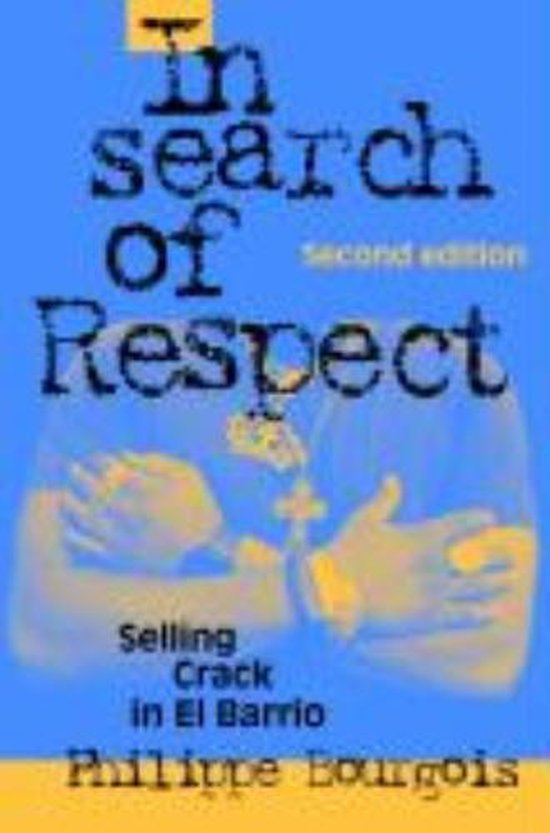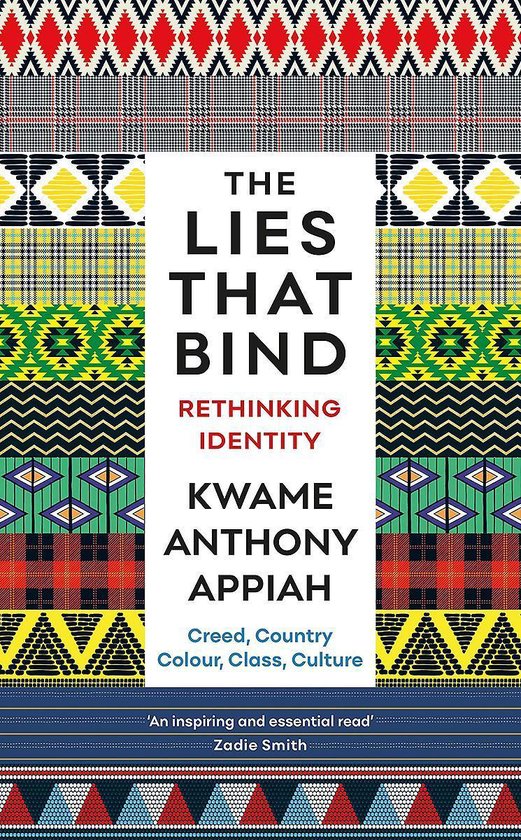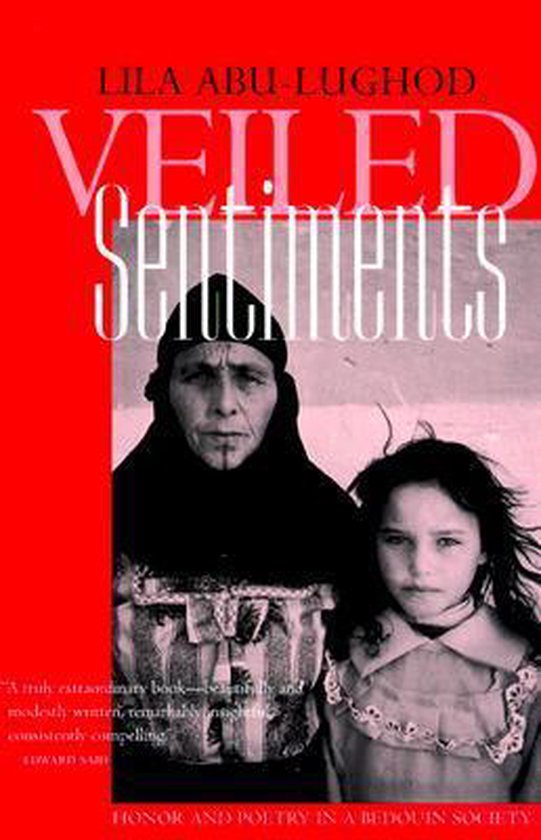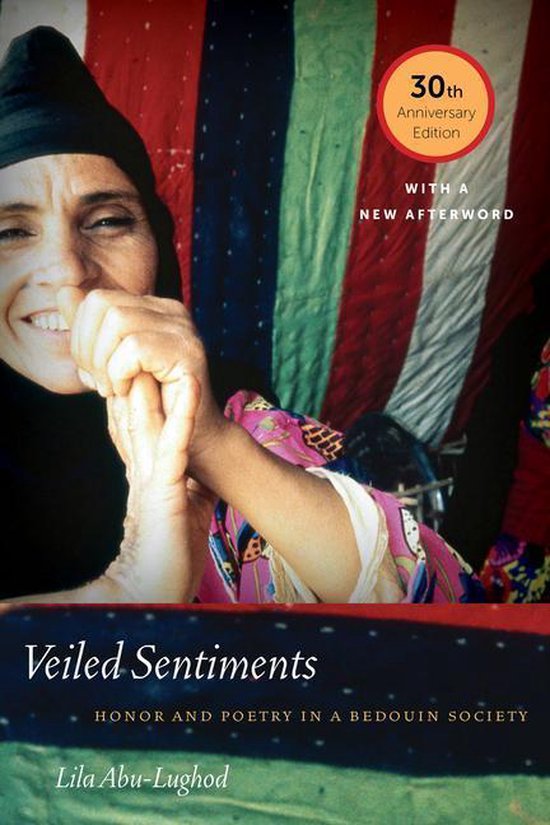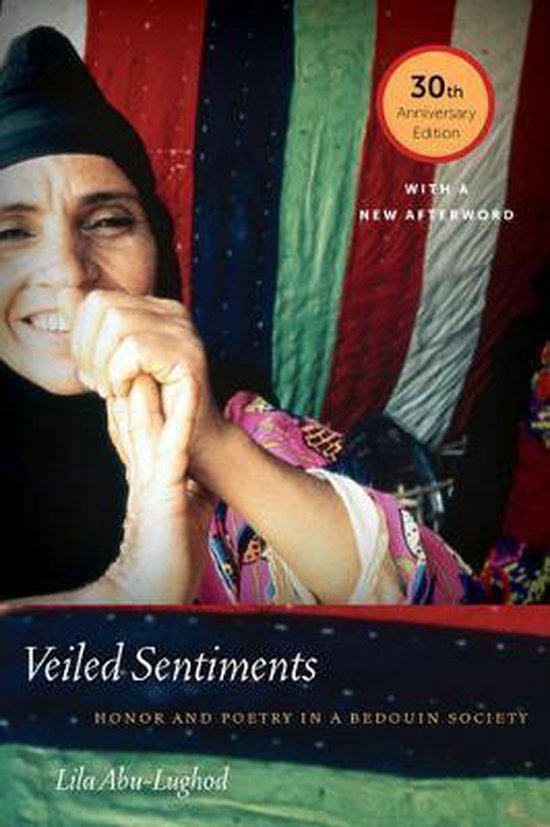
Veiled Sentiments
During the late 1970s and early 1980s, the author lived with a community of Bedouins in the Western Desert of Egypt for nearly two years, studying gender relations, morality, and the oral lyric poetry through which women and young men express personal feelings. In this book, the poems are haunting, and the evocation of emotional life vivid.
“A fascinating, fresh interpretation of the mechanics of the twin codes of Bedouin behavior: the ‘code of honor’ . . . and the ‘code of modesty.’ The argument is compelling—it makes sense of honor killings, the veiling of women, and a seemingly excessive sexual modesty. There is a certain excitement here, as the pieces of the puzzle fall into place.”—Inea Bushnaq, New York Times Book Review
“A brilliant study of moral constraint and personal expression. . . . Detailed, immediate, and superbly composed. . . . Some books extend discussions, others launch them. This is one of the latter.”—Clifford Geertz
“A truly extraordinary book—beautifully and modestly written, remarkably insightful, consistently compelling.”—Edward Said
First published in 1986, Lila Abu-Lughod's Veiled Sentiments has become a classic ethnography in the field of anthropology. During the late 1970s and early 1980s, Abu-Lughod lived with a community of Bedouins in the Western Desert of Egypt for nearly two years, studying gender relations, morality, and the oral lyric poetry through which women and young men express personal feelings. The poems are haunting, the evocation of emotional life vivid. But Abu-Lughod's analysis also reveals how deeply implicated poetry and sentiment are in the play of power and the maintenance of social hierarchy. What begins as a puzzle about a single poetic genre becomes a reflection on the politics of sentiment and the complexity of culture. This thirtieth anniversary edition includes a new afterword that reflects on developments both in anthropology and in the lives of this community of Awlad 'Ali Bedouins, who find themselves increasingly enmeshed in national political and social formations. The afterword ends with a personal meditation on the meaning-for all involved-of the radical experience of anthropological fieldwork and the responsibilities it entails for ethnographers.
“A fascinating, fresh interpretation of the mechanics of the twin codes of Bedouin behavior: the ‘code of honor’ . . . and the ‘code of modesty.’ The argument is compelling—it makes sense of honor killings, the veiling of women, and a seemingly excessive sexual modesty. There is a certain excitement here, as the pieces of the puzzle fall into place.”—Inea Bushnaq, New York Times Book Review
“A brilliant study of moral constraint and personal expression. . . . Detailed, immediate, and superbly composed. . . . Some books extend discussions, others launch them. This is one of the latter.”—Clifford Geertz
“A truly extraordinary book—beautifully and modestly written, remarkably insightful, consistently compelling.”—Edward Said
First published in 1986, Lila Abu-Lughod's Veiled Sentiments has become a classic ethnography in the field of anthropology. During the late 1970s and early 1980s, Abu-Lughod lived with a community of Bedouins in the Western Desert of Egypt for nearly two years, studying gender relations, morality, and the oral lyric poetry through which women and young men express personal feelings. The poems are haunting, the evocation of emotional life vivid. But Abu-Lughod's analysis also reveals how deeply implicated poetry and sentiment are in the play of power and the maintenance of social hierarchy. What begins as a puzzle about a single poetic genre becomes a reflection on the politics of sentiment and the complexity of culture. This thirtieth anniversary edition includes a new afterword that reflects on developments both in anthropology and in the lives of this community of Awlad 'Ali Bedouins, who find themselves increasingly enmeshed in national political and social formations. The afterword ends with a personal meditation on the meaning-for all involved-of the radical experience of anthropological fieldwork and the responsibilities it entails for ethnographers.
| Auteur | | Lila Abu-Lughod |
| Taal | | Engels |
| Type | | Paperback |
| Categorie | | Mens & Maatschappij |
